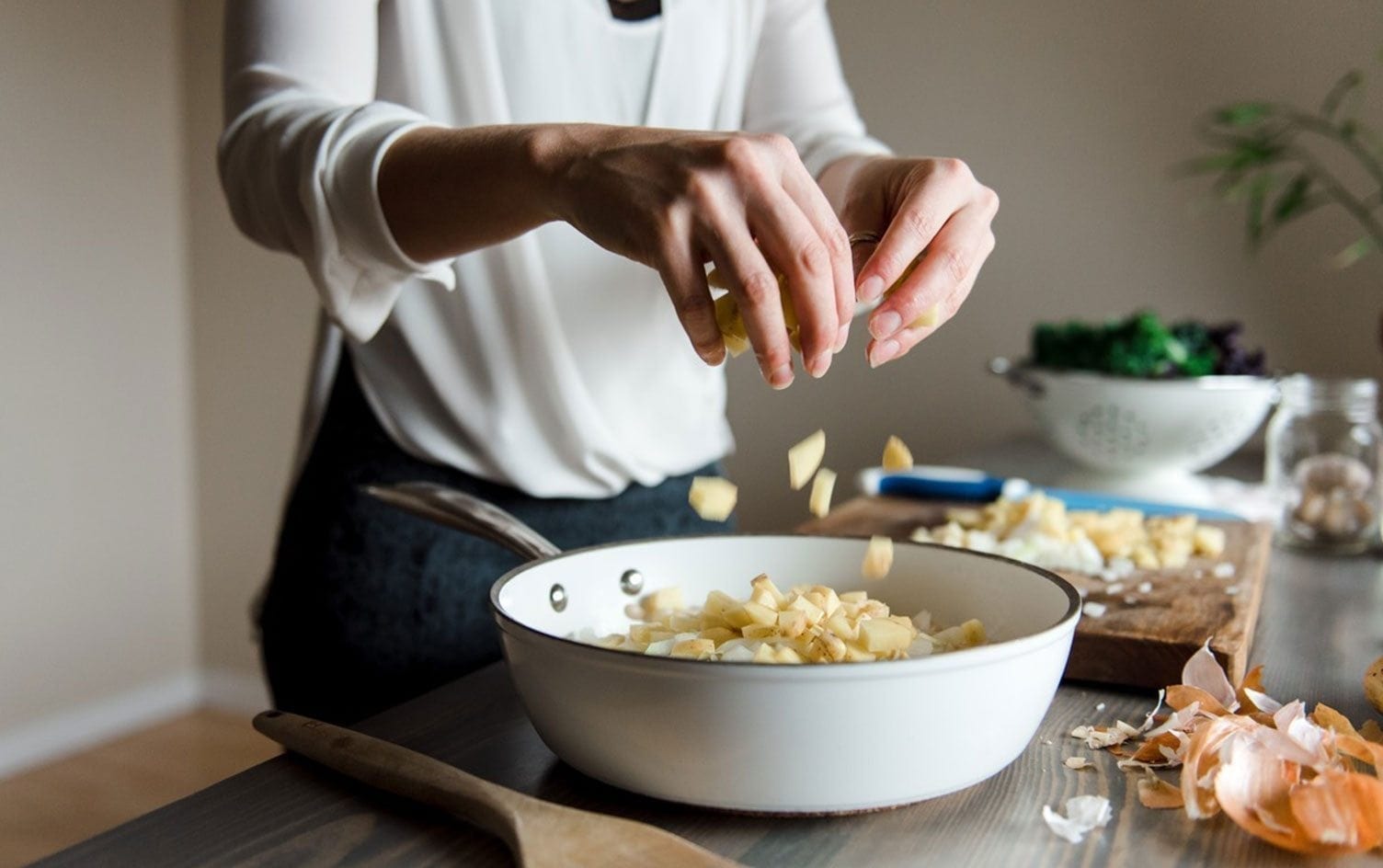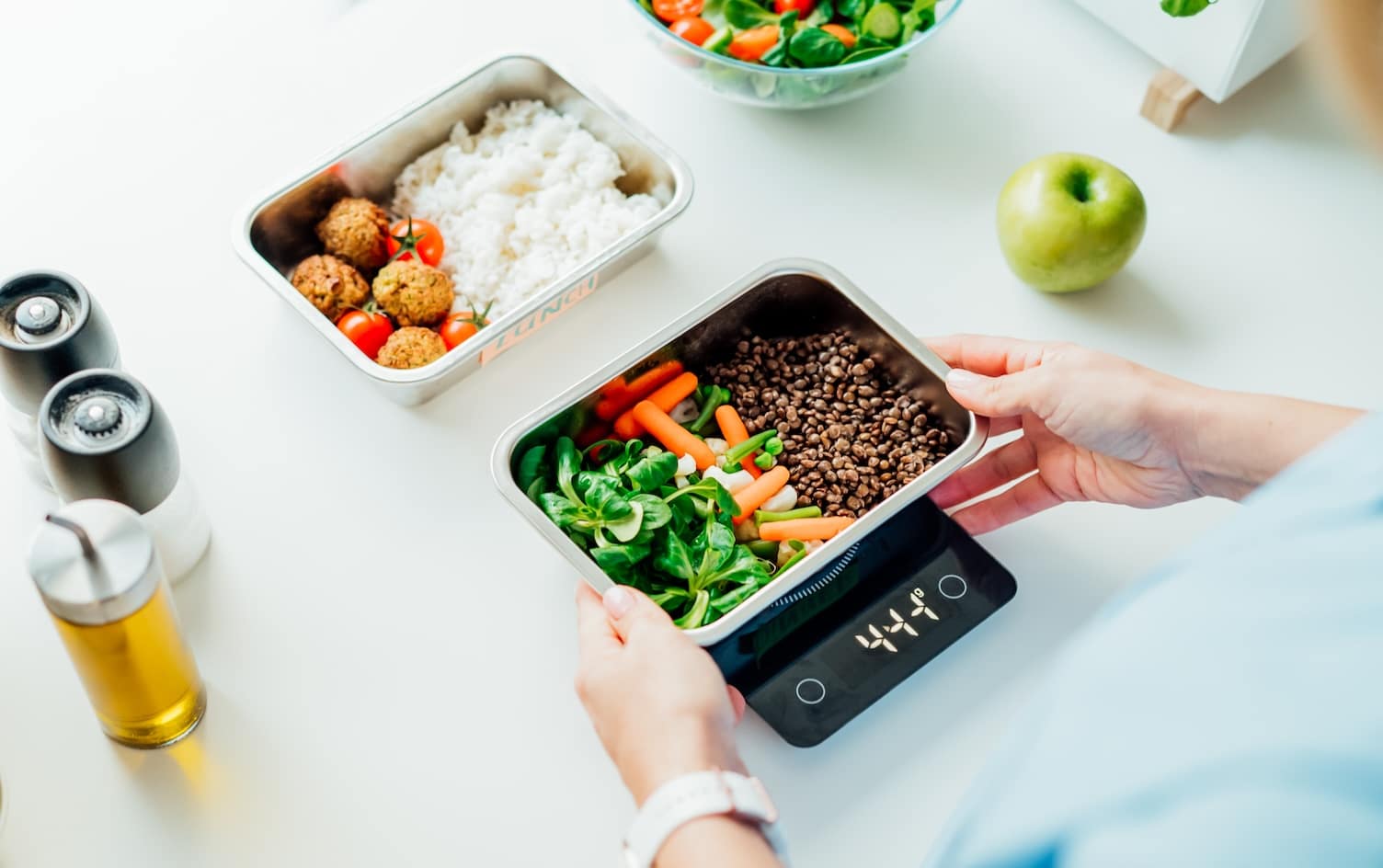Prebiotics have recently joined probiotics to become darlings of the nutrition world.
Simply put, probiotics are beneficial bacteria in our gastrointestinal tract. Prebiotics are indigestible carbohydrates that serve as “food” for those healthy bugs. Want more help digesting the difference (pun intended!) between the two? Keep reading.
The presence of probiotics in our gut supports immune health and heart health, and plays a role in other aspects of our health that we don’t fully understand yet. Additionally, probiotics digest foods we can’t digest ourselves, and the byproducts of this fermentation support mental health. Probiotics are found in food and drinks like yogurt, kefir, kombucha, and kimchi, and they’re available in supplement form. However, to get some of the benefits, we need to consume enough prebiotics to feed the bacteria and get the beneficial byproducts.
FOOD FOR THOUGHT
To stimulate growth of probiotics, we can consume prebiotics. They pass through the small intestine into the colon (large intestine), where they are digested by probiotics.
“Prebiotics have been shown to inhibit the growth of harmful bacteria, stimulate the immune system, aid in the digestion of food and absorption of beneficial components, synthesize certain vitamins, and provide fuel for the growth of cells lining the colon,” says Guy Crosby, PhD, the science editor for America’s Test Kitchen and an adjunct associate professor at the Harvard T.H. Chan School of Public Health.
“Foods that function as prebiotics are nondigestible carbohydrates, such as resistant starch, pectins, gums, non-digestible sugars and small polymers of various sugars called oligosaccharides [one example is inulin],” says Crosby. “Also included are the beta-glucans found in oat bran.”
GOOD BUGS FOR A HEALTHIER GUT
To boost our gut health, we should include both probiotics and prebiotics in our diets. Karen Ansel, MS, RDN, and author of “Healing Superfoods for Anti-Aging: Stay Younger, Live Longer,” recommends a food-first strategy. “Foods that are good sources of prebiotics are rich in lots of other important nutrients, too,” she explains.
Crosby agrees that food is the best source of prebiotics — meaning you don’t have to buy pricey supplements. “The multitude of beneficial bacteria living in our large intestine feed on many different forms of prebiotics,” he says. “A supplement is likely to contain only one form. It would be like humans eating the same food every day.”
Michael Smith, MD, the medical director and chief medical editor at WebMD, recommends eating a wide variety of fruits and vegetables, including those in the garlic and onion family, to keep your diet rich in prebiotics. “Prebiotics are good for everyone, no matter the type of diet you are on,” he says. “And since most of us do not get enough fiber to begin with (most of us only get about half the fiber we need in a day), any opportunity to pack our diets with fiber should not be missed.”
A word of warning: Since prebiotics are not digested, you’ll want to start slowly to avoid the unsavory side effects that can come when you overdo it on them.
“You definitely want to give your digestive system a chance to adjust to prebiotics,” cautions Ansel. “If you’re not in the habit of eating lots of prebiotic foods, add them to your diet a little at a time to minimize gas and bloating.”
WHERE TO FIND PREBIOTICS
Look for prebiotics in jicama, unripe bananas, apples, legumes, whole wheat, oats, barley, cocoa and flax seeds, as well as certain starchy foods that have been cooked and cooled, such as potatoes.
Even if you’re on a low-carb diet, you can also glean prebiotics from asparagus, Jerusalem artichokes (sunchokes) and artichokes, dandelion greens, chicory, garlic, onions and leeks. One of Smith’s favorite sources is seaweed, since it’s “a very potent prebiotic (and great in a seaweed salad).”
Now, that’s a good reason to go with your gut!
Originally published February 2017, updated April 2023




